Table of Contents
In a past article, I showed you five handy steps to help you find the right trailer. For this post we’re going to dig a little deeper into five horse trailer flooring options. Now, you might be thinking that the type of flooring you have in your trailer isn’t all that important, but what you choose can make a big difference to your trailer, your horse, and your pocketbook.
I’ll talk about five options to consider: Wood, Aluminum, Rumber, Polylast and WERM. Each choice is different and has its own advantages and disadvantages. Differences range from cost and maintenance, to leg support for your horse. I’m going to take you through each options pros and cons, then you can decide for yourself which is best. We’ll cover these five main factors when considering trailer flooring:
- Durability
- Heat Transfer
- Noise/Vibration Transfer
- Maintenane
- Cost
Key Takeaways:
- Wood flooring is a classic, cost-effective option that provides good insulation and shock absorption, but requires proper treatment and maintenance to ensure durability.
- Aluminum flooring is a popular choice but has drawbacks such as poor insulation, noise and vibration transfer, and potential corrosion if not cleaned and maintained regularly.
- Rumber, a modern option made of recycled rubber and plastic, offers excellent durability, insulation, and shock absorption, but comes with a higher price tag compared to wood and aluminum.
- Polylast, an eco-friendly flooring made of recycled rubber, provides great insulation, noise and vibration reduction, and is easy to maintain, but it is relatively expensive and can be difficult to repair if damaged.
- WERM flooring shares many benefits with Polylast, such as insulation and shock absorption, but can be prone to damage from restless horses and may also be expensive to repair if damaged.
Wood Horse Trailer Flooring
When it comes to trailer flooring wood is a classic choice. Wood has been used for years and is still used today despite some more modern choices available and for good reason.
Durability: As long as the wood is installed properly with ¼” spacing and treated to protect against rot you’ll find that it lasts much longer than other types of flooring. The spacing helps with proper ventilation which allows for better drainage and keeps the wood from rotting prematurely.
Noise/Vibration Transfer: Because wood gives and bends slightly, it causes less vibrations and absorbs the shock of the road much better than materials like aluminum. This gives horses a much smoother, quieter ride while protecting their joints at the same time.
Heat Transfer: Unlike other options, wood won’t conduct heat from the road on those long summer hauls, and in the winter it won’t retain the cold. This means that you’ve got a comfortable ride for your horses year-round.
Maintenance: Wood floors are pretty low maintenance, but many people prefer to use rubber mats over them to provide extra cushion for their horse. If you do use rubber mats then you’ll have to take them out and hose them down about three times a year.
Cost: Wood is one of the most cost effective options for trailer flooring as long as it’s treated and properly maintained. If you ever have to replace or repair the floor the lumber is readily accessible, cheap, and it doesn’t require an expert to install. The typical range is from $600-900 depending on the size of your trailer and if you have a dressing room.
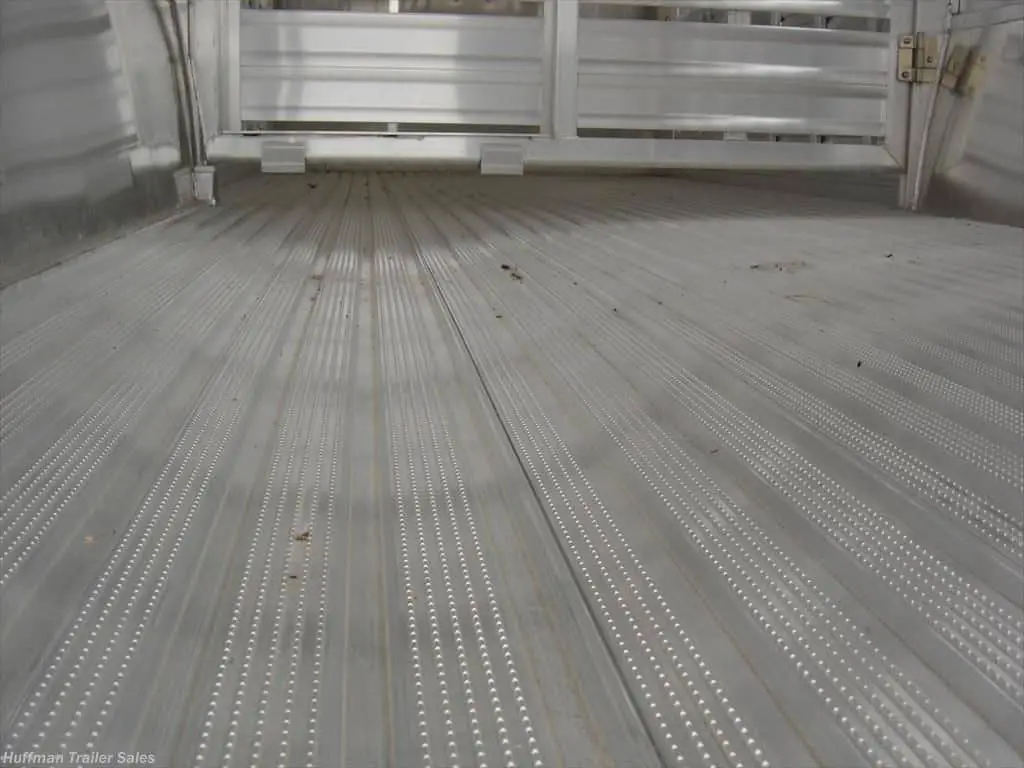
Aluminum Horse Trailer Flooring
Heavily promoted by trailer companies, aluminum has been a very popular choice for trailer floors over the last few years. While it has its own merits, you might find that the drawbacks exceed the benefits.
Durability: Aluminum weighs less than other flooring options, but because it’s lighter, it’s also weaker. You have the option of planked aluminum floors- interlocked pieces that are stronger than the standard option, but even those require a lot more support than other types of flooring.
Noise/Vibration transfer: Unlike wood, aluminum does not absorb shock well and therefore creates a lot of noise and vibrations. Neither of these is going to help give your horse soundness of mind…or hoof for that matter.
Heat transfer: This just in! Aluminum is a highly conductive material! Surprised? I didn’t think so. This means the floors of your trailer are going to be burning in the summer and absolutely frigid in the winter.
Maintenance: While relatively easy to maintain, you have to be very careful to consistently clean your aluminum floors. This means taking out the rubber mats, rinsing them and the trailer, and letting everything fully dry before you replace them. You’ll want to do this at least 5 times a year. You’ll also want to have an acid bath done twice a year to help prevent oxidation and rust.
Cost: Being one of the most standard flooring options, aluminum isn’t as pricey compared to other options. However, if you end up having to replace it due to corrosion, the repairs run up to around $1000.
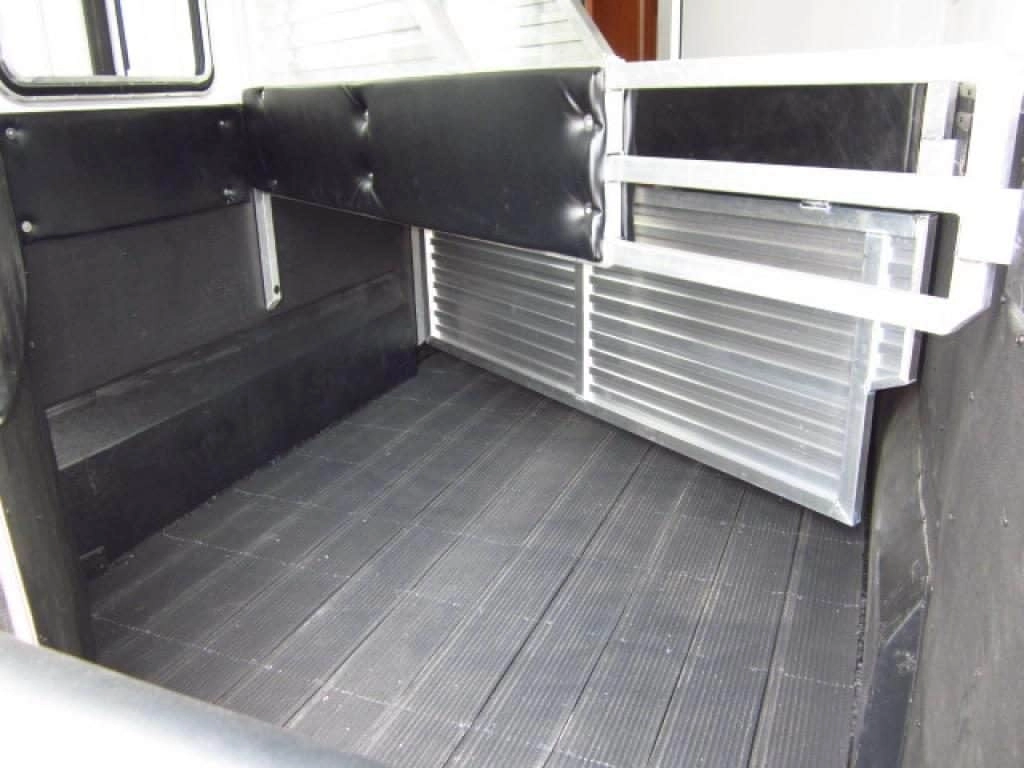
Rumber Horse Trailer Flooring
A more modern option, Rumber is a synthetic material made of 60% recycled rubber and 40% recycled plastic. It is made into tongue and groove boards that are fitted together to form a solid surface without the need for rubber mats on top.
Durability: Rumber is an extremely tough material that lasts for a long time. Because of its textured material it provides good, solid footing for the barefoot or shod horse even when wet.
Noise/vibration transfer: The mix of rubber and plastic effectively reduce noise and vibrations which means your horse’s ride is a lot more pleasant.
Heat Transfer: Of the five options, Rumber transfers the least amount of heat making it a great choice for those down South.
Maintenance: Cleaning Rumber couldn’t be any easier. You simply hose it out and let it dry. You don’t have to worry about drainage either; it easily drains out the back.
Cost: Perhaps the only drawback of Rumber is that it’s a little pricier than the first two flooring options. It runs upwards of $2000 generally, but if you factor in the cost to replace other types of flooring you might end up saving in the long run.
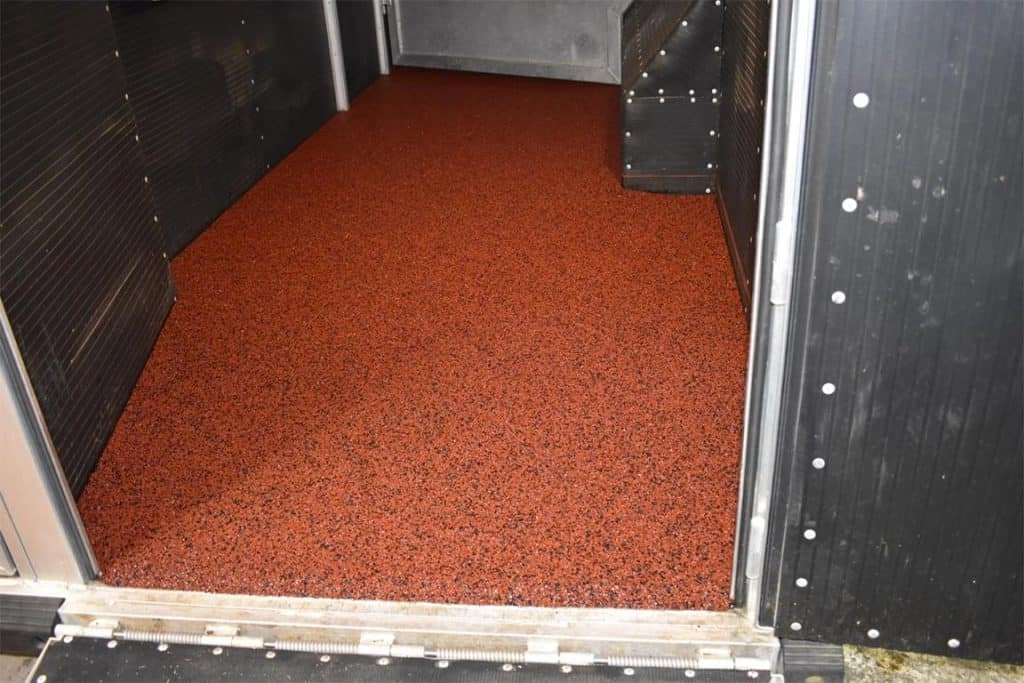
Polylast Horse Trailer Flooring
Another eco-friendly option, Polylast is made of 100% recycled rubber mixed with an adhesive. It is mixed and poured to ½” to ¾” thickness and leveled off using a trowel.
Durability: Similarly to Rumber, Polylast is very strong and lasts long time. Because it is bonded to the trailer floor, it will also protect the trailer bed from exposure to moisture and acid.
Noise/Vibrations: Being 100% rubber, naturally Polylast absorbs road noise and vibrations better than the other flooring choices. It provides lots of cushion and is slip resistant making it an ideal option for long hauls.
Heat Transfer: Polylast is a great insulator against heat and cold, your trailer will stay temperate and comfortable.
Maintenance: Cleaning Polylast is very easy. You just rinse it out and let it dry. Since it’s a porous material, moisture is able to drain through and the supporting floor with 5/16” holes drilled every 12” on center completes the drainage. This helps protect the integrity of your trailer bed. If the flooring is damaged however, it is very difficult to repair.
Cost: The main drawback is how expensive Polylast is. I’ve since quotes ranging from $10-16/ square foot and if it is damaged at any point it is very costly to fix.
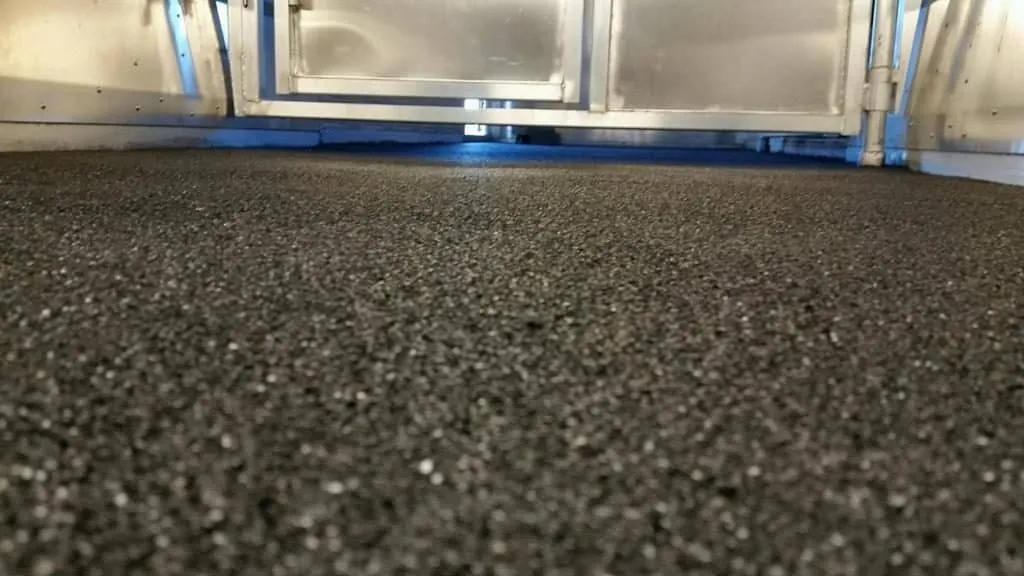
WERM Horse Trailer Flooring
This product is very similar to Polylast in that it is also made of 100% recycled rubber, mixed with adhesive and applied to the trailer floor in the same way.
Durability: WERM floors are quite durable and since they completely seal off the trailer floor the trailer bed is well protected. However they are prone to being damaged by horses that paw in the trailer, so if your horse gets restless on hauls this might not be an ideal choice.
Noise/Vibrations: Noise/Vibration reduction is top notch and the cushion, non-slip flooring provides excellent support for your horse.
Heat Transfer: Because WERM is made from 100% rubber it will not transfer heat and protects against the cold.
Maintenance: Just like Polylast, you simply have to rinse out your trailer with a hose to clean it. The only concern is that if, for some reason, moisture does find its way under the WERM flooring it will corrode your trailer bed and make it unstable. Also keep in mind that if the flooring is damaged, it is very costly to have repairs done.
Cost: The starting cost is around $10/square foot, but the size and make of your trailer can affect the end cost.
Everyone has their own ideas when it comes to trailer flooring. Some people swear that their WERM floors are the best thing they ever did for their trailer, others love the value of Rumber. I’m a no frills kinda guy myself so I prefer wood flooring above all. Whatever you choose, just be sure to take good care of it and you’ll have a trailer floor that won’t let you down.

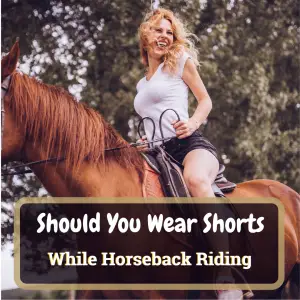

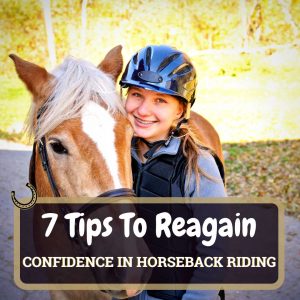


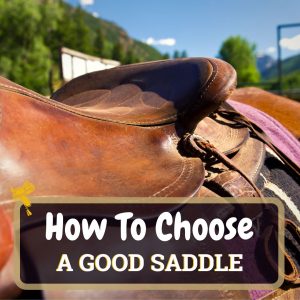


4 thoughts on “5 Horse Trailer Flooring Options – Pros And Cons”
Thank you for this information. We have a trailer that we bought and found out the aluminum flooring had not been taken care of. So, my question is, can we install flooring (looking at the rumber) over top of the aluminum or do we have to remove the bad flooring first?
If not, how do we go about removing the floor – it is 8 inch aluminum slats.
If we have to remove the floor then we will only replace what is damaged but not sure where to find the product.
Any tips on how to preserve an aluminum floor with mild to moderate oxidization?
Robin
clean with 50/50 of water and muriatic acid. use a stiff broom to scrub. Let stand until it foams. then rinse a repeat if necessary.
Then visit Equiflexproducts.com
Great website guys. What would you use to replace the flooring of a drop down loading ramp on a float.